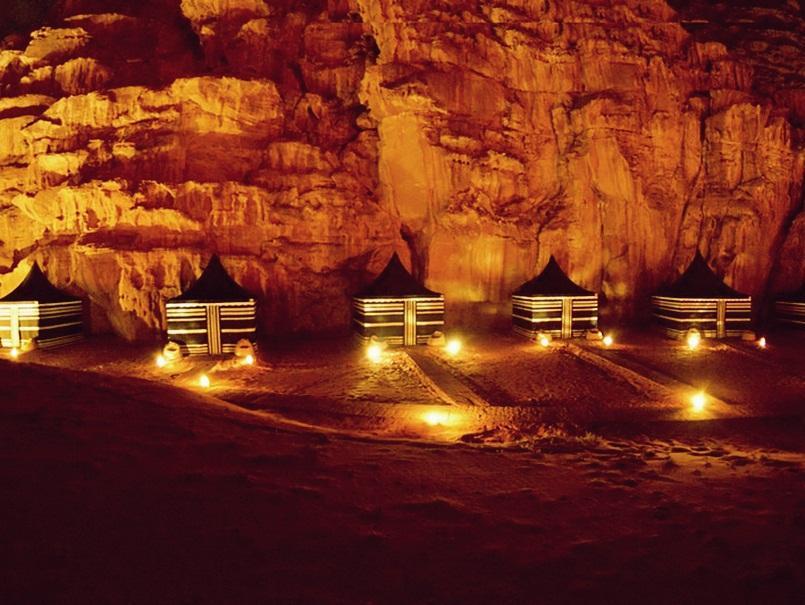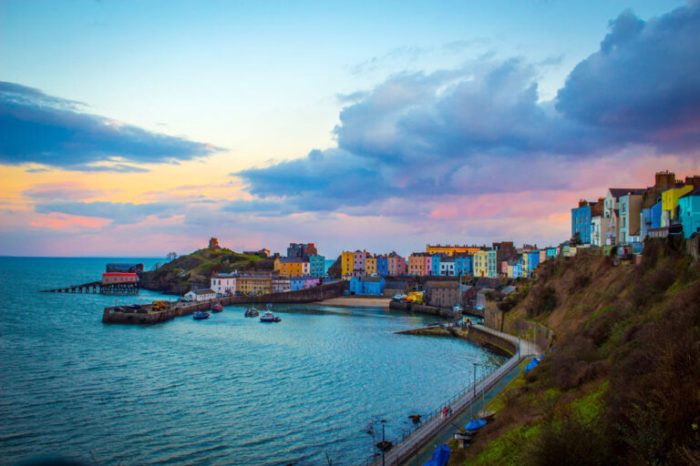Dive into the captivating world of berlin music venues, renowned for their unparalleled atmosphere, architectural marvels, and the rich tapestry of musical genres they showcase. From intimate clubs to grand concert halls, these venues have played a pivotal role in shaping Berlin’s vibrant music scene and cultural identity.
Over the decades, berlin music venues have witnessed legendary performances, fostered musical innovation, and showcased a diverse range of artists. Their unique designs and cutting-edge technology create immersive experiences, while their impact extends beyond the city limits, influencing global music trends and fostering international collaborations.
Prominent Berlin Music Venues
Berlin’s vibrant music scene is home to an array of renowned music venues that have played a pivotal role in shaping the city’s cultural landscape. These venues, each with its own unique character and historical significance, have hosted legendary performances by artists from around the world.
From the grand Konzerthaus Berlin to the intimate Berghain, these venues offer diverse experiences that cater to a wide range of musical tastes and preferences. Whether it’s classical, techno, or experimental music, Berlin’s music venues provide an unparalleled platform for both established and emerging artists.
Konzerthaus Berlin
The Konzerthaus Berlin is one of the most prestigious concert halls in Europe. It is renowned for its exceptional acoustics and has been the home of the Konzerthausorchester Berlin since 1994. The hall has a seating capacity of over 1,500 and hosts a wide range of concerts, including classical, jazz, and world music.
Philharmonie Berlin
The Philharmonie Berlin is another world-renowned concert hall. It is home to the Berliner Philharmoniker, one of the world’s leading orchestras. The hall is known for its innovative design and has a seating capacity of over 2,400. The Philharmonie hosts a wide range of concerts, including classical, jazz, and contemporary music.
Berghain
Berghain is one of the most famous nightclubs in the world. It is known for its techno music and has been a major force in the city’s electronic music scene since it opened in 2004. Berghain has a capacity of over 1,500 and hosts a wide range of DJs and live acts.
Watergate
Watergate is a nightclub located on the banks of the River Spree. It is known for its techno and house music and has been a popular destination for clubbers since it opened in 2002. Watergate has a capacity of over 1,000 and hosts a wide range of DJs and live acts.
Historical Impact of Berlin Music Venues
Berlin’s music venues have played a pivotal role in shaping the city’s vibrant music scene and cultural identity. From the underground clubs of the Weimar era to the world-renowned concert halls of today, these venues have fostered a rich musical legacy that continues to inspire and influence musicians and audiences alike.
The early 20th century saw the emergence of Berlin’s first music venues, such as the legendary Metropol Theater and the Wintergarten Varieté. These venues hosted a diverse range of musical acts, from cabaret performers to classical musicians. In the 1920s, Berlin became a hub for jazz and dance music, with venues like the Delphi and the Moka Efti providing a platform for emerging artists.
The Weimar Republic and the Golden Twenties
During the Weimar Republic, Berlin’s music venues flourished. The city’s cabaret scene was particularly vibrant, with venues like the Schall und Rauch and the Tingel-Tangel hosting satirical and politically charged performances. Jazz also gained popularity during this period, with clubs like the Blue Note and the Jockey Club becoming popular hangouts for musicians and intellectuals.
The Nazi Era and World War II
The rise of the Nazi regime in 1933 had a devastating impact on Berlin’s music scene. Many music venues were closed down, and Jewish musicians were banned from performing. The war years saw further destruction, with many venues being bombed or damaged.
Post-War Berlin and the Division of the City
After World War II, Berlin was divided into East and West. In East Berlin, the communist government controlled the music scene, while in West Berlin, a vibrant and experimental music scene emerged. Venues like the Quasimodo and the SO36 became important centers for punk, new wave, and experimental music.
Reunification and the Present Day, Berlin music venues
The fall of the Berlin Wall in 1989 led to a reunification of the city’s music scene. New venues opened up, and existing venues were renovated. Today, Berlin is once again a global center for music, with a diverse range of venues catering to all tastes and styles.
Diversity of Music Genres Represented

Berlin’s music venues are renowned for their eclectic programming, catering to a diverse array of musical tastes. From the thumping beats of electronic music to the soaring melodies of classical symphonies, the city’s venues offer a platform for artists across the musical spectrum.
This diversity is a testament to Berlin’s vibrant and inclusive music culture. It allows music lovers to explore new genres, discover emerging talent, and experience the transformative power of live music in all its forms.
Electronic Music
Berlin is synonymous with electronic music, and its venues have played a pivotal role in the genre’s development. From legendary clubs like Berghain and Tresor to intimate spaces like KitKat and Watergate, the city offers a wide range of venues dedicated to electronic music.
These venues have fostered a thriving community of DJs, producers, and fans, and they continue to attract international artists and music lovers alike.
Classical Music
Berlin is also home to a rich classical music scene. The city’s world-renowned orchestras, including the Berlin Philharmonic and the Staatskapelle Berlin, perform in prestigious venues such as the Philharmonie and the Staatsoper Unter den Linden.
These venues offer a wide range of classical repertoire, from traditional symphonies to contemporary works, and they attract audiences from around the world.
Jazz
Berlin has a long and storied history of jazz music. Venues like A-Trane and Quasimodo have hosted legendary jazz musicians, and the city continues to be a vibrant hub for jazz enthusiasts.
These venues offer a mix of traditional and contemporary jazz, and they provide a platform for both established and emerging artists.
Other Genres
Beyond electronic music, classical music, and jazz, Berlin’s music venues cater to a wide range of other genres. From indie rock and hip-hop to world music and experimental sounds, there is something for every taste.
Berlin’s music venues have always been a hub for creativity and innovation, attracting artists from around the world. The city’s vibrant music scene is complemented by a wide range of outdoor activities, making it an ideal destination for adventure enthusiasts.
Whether you’re exploring the iconic Berghain nightclub or hiking through the picturesque Grunewald Forest, you’ll find that Berlin has something to offer everyone. And if you’re looking for the perfect gear to keep you comfortable and protected on your outdoor adventures, be sure to check out the loop wading jacket . This versatile jacket is designed to withstand the elements, making it ideal for a variety of activities, from fishing to kayaking to simply exploring the great outdoors.
So, whether you’re a music lover, an outdoor enthusiast, or both, be sure to add Berlin to your travel list.
This diversity reflects the city’s open-minded and welcoming approach to music, and it ensures that there is always something new and exciting to discover.
Famous Artists Who Have Performed: Berlin Music Venues
Berlin’s music venues have hosted a plethora of renowned musicians and bands throughout history, leaving an indelible mark on the city’s music scene. These artists have captivated audiences with their exceptional performances, contributing to Berlin’s reputation as a global music hub.
Legendary Performers
Among the most iconic artists to grace Berlin’s stages are:
- David Bowie: The enigmatic rock star performed at the Metropol Theater in 1978, leaving a lasting impression with his electrifying performance.
- The Rolling Stones: The legendary band made their Berlin debut in 1965 at the Star-Club, setting the stage for their future global success.
- Bob Dylan: The folk-rock icon played at the Tempodrom in 2011, captivating the audience with his timeless lyrics and poignant performances.
- Madonna: The pop queen performed at the O2 World in 2012, showcasing her elaborate stage shows and captivating dance routines.
- U2: The Irish rock band performed at the Waldbühne in 2018, delivering an unforgettable performance that left fans mesmerized.
These artists’ performances have not only entertained audiences but have also inspired countless aspiring musicians and contributed to Berlin’s rich musical heritage.
Unique Architectural Features
Berlin’s music venues are renowned for their distinctive architectural designs, which play a crucial role in enhancing the music experience and creating memorable atmospheres. These venues often feature innovative and unconventional spaces that cater to the diverse needs of musicians and audiences alike.
One of the most striking examples is the Berghain nightclub, housed in a former power plant. Its cavernous interior features exposed brick walls, towering ceilings, and an intricate network of catwalks and balconies. This industrial aesthetic creates a raw and immersive atmosphere that perfectly complements the venue’s techno music programming.
Tresor
Another iconic venue, Tresor, is located in an abandoned department store. Its main dance floor is a vast, open space with a high ceiling and exposed steel beams. The venue’s minimalist design allows for a clear and powerful sound experience, making it a popular destination for house and techno enthusiasts.
Watergate
Watergate, situated on the banks of the River Spree, boasts a unique floating dance floor. The venue’s floor-to-ceiling windows offer panoramic views of the city skyline, creating a breathtaking backdrop for electronic music performances.
Funkhaus Berlin
Funkhaus Berlin, a former broadcasting house, has been transformed into a state-of-the-art music venue. Its spacious concert hall features a stunning vaulted ceiling and a large stage, providing an exceptional acoustic experience for classical, jazz, and electronic music concerts.
Technological Advancements

Berlin music venues have embraced the latest technological advancements to enhance the audience experience. These advancements have revolutionized sound quality, lighting, and overall atmosphere, creating an immersive and unforgettable experience for concert-goers.
One significant advancement is the implementation of state-of-the-art sound systems. Venues like Berghain and Tresor are renowned for their pristine acoustics, achieved through custom-designed speaker systems and advanced audio processing. This technology ensures crystal-clear sound, eliminating distortion and providing an unparalleled listening experience.
Lighting
Lighting has also undergone a technological transformation. Modern venues utilize intelligent lighting systems that allow for dynamic and immersive light shows. These systems can be programmed to create custom effects, synchronized with the music to enhance the emotional impact of performances.
Venues like Kater Blau and Watergate have become known for their mesmerizing light displays, adding an extra layer of spectacle to the musical experience.
Interactive Technologies
Interactive technologies are also making their way into Berlin music venues. Mobile apps allow concert-goers to connect with the venue and artists, providing real-time information, personalized recommendations, and interactive experiences. Venues like Astra Kulturhaus and Funkhaus Berlin are pioneering the use of these technologies, creating a more engaging and interactive concert experience.
Local and International Influence
Berlin’s music venues have played a pivotal role in shaping both the local and international music scenes. They have served as breeding grounds for new musical trends, fostering collaborations between artists from diverse backgrounds.
Local Impact
Berlin’s music venues have had a profound impact on the city’s vibrant musical culture. They have provided a platform for local artists to showcase their talents, develop their sound, and connect with audiences. Venues like Berghain, Tresor, and Watergate have become synonymous with Berlin’s electronic music scene, attracting DJs and producers from around the world.
These venues have also played a crucial role in promoting emerging genres, such as techno, house, and dubstep.
International Influence
Beyond their local impact, Berlin’s music venues have also had a significant influence on the international music scene. They have attracted artists from all corners of the globe, creating a melting pot of musical influences. The city’s open and experimental atmosphere has fostered collaborations between artists from different countries, leading to the creation of innovative and groundbreaking music.
Berlin’s music venues have also become a destination for music lovers from around the world, contributing to the city’s reputation as a global cultural hub.
Music Festivals and Special Events
Berlin’s music venues play a significant role in hosting major music festivals and special events that attract music enthusiasts from around the world. These events showcase a diverse range of genres, from electronic music to classical, jazz, and rock, contributing to the city’s reputation as a global music destination.
The city’s iconic venues, such as Berghain, Watergate, and Funkhaus Berlin, host renowned festivals like the Berlin Music Week, Atonal, and CTM Festival. These events feature performances by renowned DJs, musicians, and artists, attracting a large international audience. They provide a platform for emerging talent, fostering collaboration and innovation within the music industry.
Electronic Music Festivals
- Berlin Music Week: An annual event featuring conferences, workshops, and showcases, attracting industry professionals and music lovers alike.
- Atonal: An experimental electronic music festival known for its innovative programming and boundary-pushing performances.
- CTM Festival: A festival dedicated to contemporary electronic music, showcasing experimental and cutting-edge artists.
Classical Music Events
- Berlin Philharmonic Orchestra: One of the world’s most renowned orchestras, performing at the Berliner Philharmonie.
- Deutsche Oper Berlin: A renowned opera house hosting a wide range of productions, from classic operas to contemporary works.
- Konzerthaus Berlin: A concert hall featuring a diverse program of classical music, jazz, and world music.
Jazz and Rock Events
- Jazzfest Berlin: An annual jazz festival showcasing a diverse lineup of international and local artists.
- Melt Festival: A multi-genre festival featuring electronic music, indie rock, and hip-hop.
- Tempelhof Sounds: A summer festival held at the former Tempelhof Airport, featuring a mix of electronic music, live bands, and art installations.
Future Trends and Innovations
The Berlin music venue scene is constantly evolving, with new trends and innovations emerging all the time. Technology, sustainability, and changing audience preferences are all shaping the industry, and it’s exciting to speculate on what the future holds.
One of the most significant trends is the increasing use of technology in music venues. This includes everything from advanced sound systems and lighting to virtual reality and augmented reality experiences. As technology continues to develop, we can expect to see even more innovative and immersive ways to experience live music.
Sustainability
Sustainability is another important trend in the music industry. Venues are increasingly looking for ways to reduce their environmental impact, such as by using renewable energy sources, recycling, and composting. Audiences are also becoming more aware of the environmental impact of their choices, and they are increasingly likely to support venues that are committed to sustainability.
Changing Audience Preferences
Audience preferences are also changing, and venues are responding by offering a wider variety of music genres and experiences. In addition to traditional concerts, venues are now hosting everything from dance parties to comedy shows to immersive art installations. This diversity is attracting a wider range of audiences, and it’s helping to create a more vibrant and exciting music scene in Berlin.
Conclusion
As Berlin’s music scene continues to evolve, its venues remain at the forefront of innovation, embracing sustainability, inclusivity, and the latest technological advancements. They continue to serve as cultural hubs, nurturing local talent, attracting international artists, and offering unforgettable musical experiences that resonate with audiences worldwide.
Essential FAQs
What is the most popular music venue in Berlin?
Berghain is widely regarded as one of the most renowned and influential music venues in Berlin, known for its cutting-edge electronic music scene.
What is the oldest music venue in Berlin?
Clärchens Ballhaus, established in 1883, is one of the oldest and most iconic music venues in Berlin, showcasing a diverse range of music genres.
What is the largest music venue in Berlin?
Mercedes-Benz Arena, with a capacity of over 17,000, is the largest music venue in Berlin, hosting major concerts and events.


